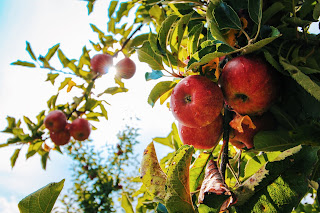How to Step Out of the “Productivity” Trap
A while ago, I heard that a prominent government official known for promoting productivity in government had been baptised into the Catholic Church. “He can now take on a new ministry of promoting productivity in the church!” a friend of mine joked.
This rather incongruous statement made me stop and think. IS productivity a value of the church?
Productivity is certainly a national value in my native Singapore – right there at the top of the list along with efficiency, effectiveness, etc. We want government to be effective, which it generally is. In general, public services in Singapore work, public transport gets you places, and the economy generally runs like a well-oiled machine. All these are well and good; the results of a culture of productivity.
But we can also see, I think, some of the dark side of productivity when it becomes both a national and personal obsession. When I ask people how they are these days, the invariable reply is, “Oh, busy as usual.” Working frenetically long hours seems to have become a badge of honour; people feel the need to make excuses if they are found with time on their hands.
Is this really necessary? What effects does this have on our mental or spiritual health, or our relationships? Have we let our self-worth become invested in our ability to be productive and successful in the workplace? (And how does this affect the way we see people who are not involved in what society considers “productive” work?)
Actually, I often fall into this “productivity” trap myself. When I worked for the government, we all knew what the Key Performance Indicators (KPIs) were for us and, as part of an annual performance review, had discussions with our bosses about how well we were meeting them. I remember now with amusement the confusion I felt when I first entered the convent and couldn’t seem to figure out what the KPIs were. In fact – horror of horrors – there didn’t seem to be any. In response to my polite inquiry as to what was expected of me, the sister who was accompanying me merely said, “We love you as you are, and want to help you become your best self.”
“!!!” I remember thinking. “No KPIs??” I couldn’t quite believe and wasn’t ready to accept the freedom they were giving me. Instead, I persisted in making myself anxious by piling up a load of unrealistic expectations on myself!
Solution 1: Claiming our adult selves
This compulsive need to be productive that many of us seem to have probably stems from the values we imbibed from our environments in childhood. I remember having a vivid dream a few years ago in which I was frantically and thoroughly cleaning a room, scrubbing out all the corners with a toothbrush and making sure that nothing was out of place. But I felt – in the dream – that no matter how well I cleaned, it was not going to be enough to please somebody, who would then be unhappy with me.
A psychologist that I discussed this dream with said that this feeling of not doing or being enough is common enough; it comes from childhood experiences (real or perceived) of not meeting the expectations of authority figures. One of the ways in which we help ourselves then is to claim our adult selves, and our power to decide for ourselves now whether what we have done is enough (instead of projecting the voices of authority figures from the past on our current realities).
Solution 2: Differentiating “productivity” and “fruitfulness”
Another way to step out of our “productivity” compulsion is to understand that there is a difference between “productivity” and “fruitfulness” – the latter of which IS a Christian value. In the gospels Jesus is not heard to say, “blessed are the productive”, but rather, “I have chosen you to go and bear fruit, fruit that will last” (John 15:16).
This is more than just semantic difference, I think. The image of the fruit tells us something very significant about what is truly important. A seeds grows into a tree that bears leaves and flowers and fruits, in a process we can see and taste – but that we cannot make happen by ourselves. It is a natural process that happens by God’s grace, with which we can cooperate, but not control.
And so it is with fruitfulness. Seen through the lens of faith, what is truly important is for us to cooperate with God’s work in the world, and this will not come about through anxious, frenetic activity in trying to control or change our surroundings. Instead, fruitfulness comes from acting out of the quiet, peaceful place in us where we are attuned to God’s presence and invitation in our lives. And even as we do our best to act in the most loving way we can, at the same time we are called to a peaceful, confident trust that it is God’s grace that will make our actions fruitful in the end. There is no need for anxiety.
What a wonderful freedom this is – if we only let ourselves claim it!






Comments
Post a Comment